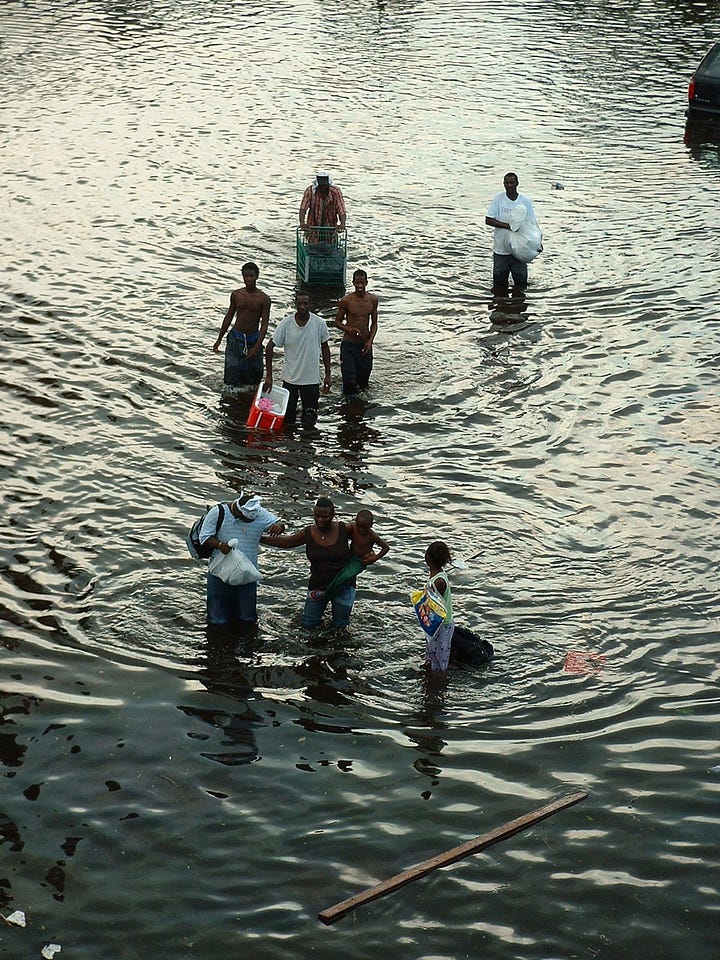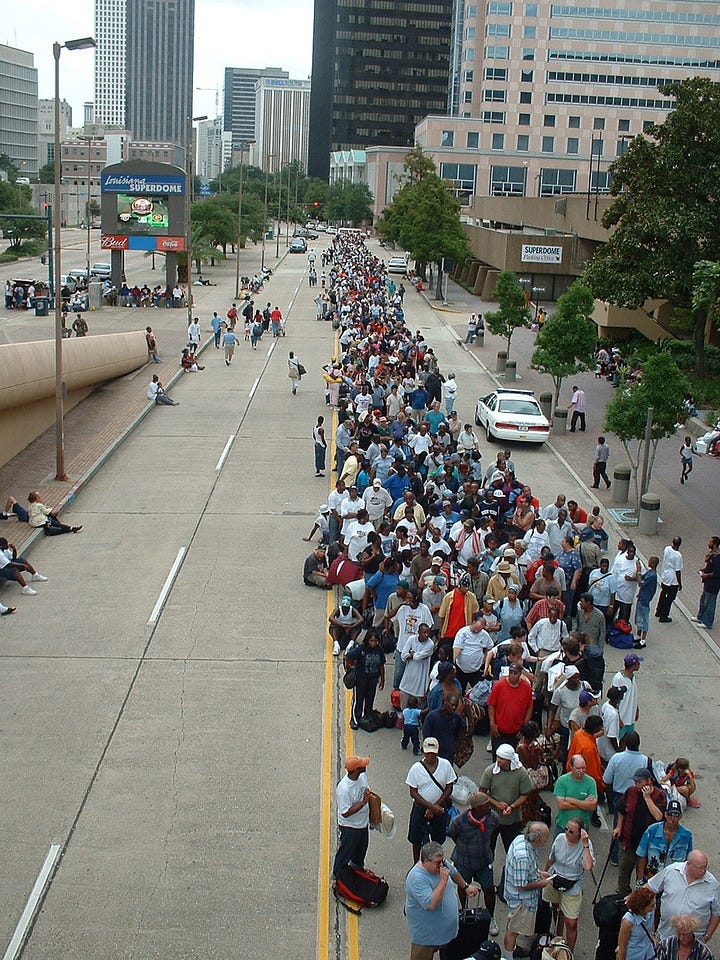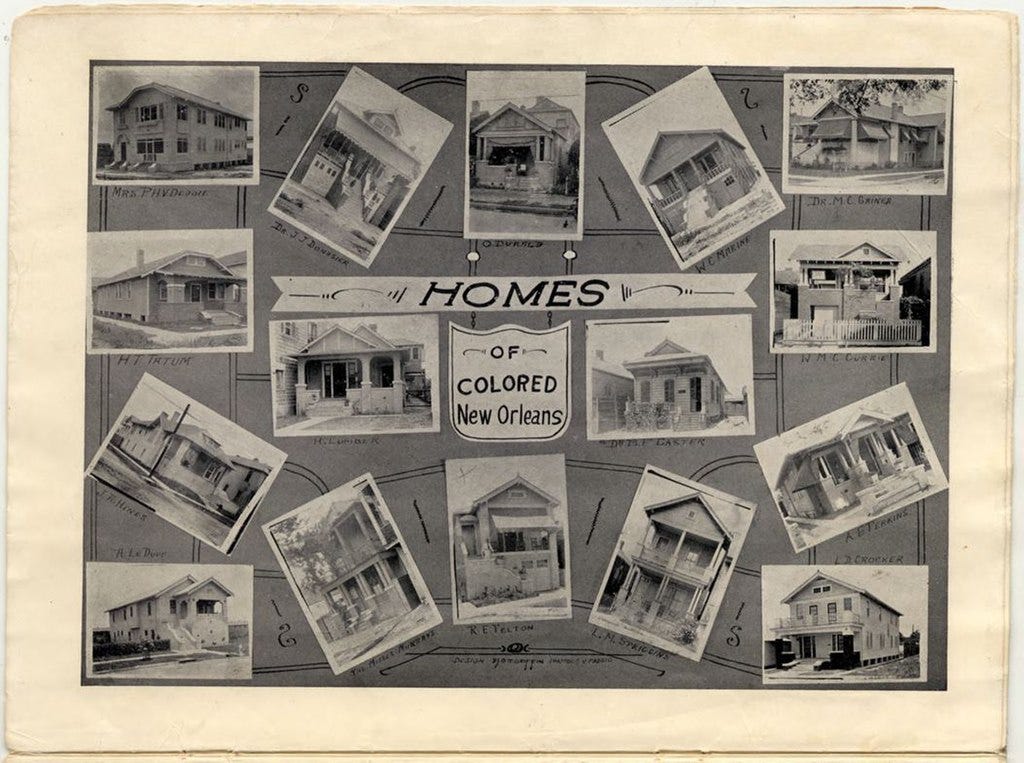After mass deaths and/or destruction, you look back and think: “What could have been done to stop this?” Oftentimes, legislation is passed reactively, not proactively, to avoid criticism.
Columbine (1999) led to campus safety reforms, a renewed focus on mental health, and eventually the NICS (National Instant Criminal Background Check System) Improvement Amendments Act of 20071 to strengthen background checks.
9/11 (2001) gave rise to the Transportation Security Administration (TSA), the Patriot Act (2001)2, and the Department of Homeland Security (2002).
COVID-19 (2020) reshaped public health policy, remote work, and our understanding of healthcare preparedness.
Flint, Michigan (2014) pushed forward regulations and water safety policies.
Hurricane Katrina (2005) brought:
major FEMA reforms (Post-Katrina Emergency Management Reform Act, 2006)
improvements to New Orleans levee and floodwall systems
a national conversation on race, poverty, and disaster response
While every tragedy leaves its mark, Katrina’s aftermath continues to remind us of how unprepared we can be. Yes, some reforms followed: FEMA restructuring, levee system improvements, shifts in federal disaster response. Yet 20 years later, the issues Katrina exposed are still with us. The storm did more than devastate a city; it uncovered the inequity of systemic racial and economic divides that made survival and recovery so uneven.



Today, experts warn us of similar vulnerabilities. Rising seas and stronger, more frequent storms are a looming reality. Katrina showed us that natural disasters are only part of the problem. The real tragedy comes when society is unprepared and inequities dictate who suffers most. These warnings ask us to act now. To build resilient communities, prioritize the vulnerable, and ensure that lessons from the past guide our future.
Two decades later, the issues Katrina exposed are not just lingering but magnified. Our national leadership, and the ideologies that treat some communities as “less than,” are more prevalent than ever. From inequitable disaster responses to persistent racial and economic divides, the lessons from these disasters remain unlearned. Katrina was not only a natural disaster; it was a mirror, reflecting the values of a society that still struggles to protect its most vulnerable. The question remains: will we wait for the next catastrophe before acting, or will we finally learn to prepare before it is too late?
Sources & Photos:
20 Years After Hurricane Katrina www.fema.gov/press-release/20250829/20-years-after-hurricane-katrina
https://www.fema.gov/disaster/historic/hurricane-katrina
https://commons.wikimedia.org/wiki/Main_Page
National Instant Criminal Background Check System (NICS) Improvement Amendments Act of 2007: https://www.congress.gov/bill/110th-congress/house-bill/2640


